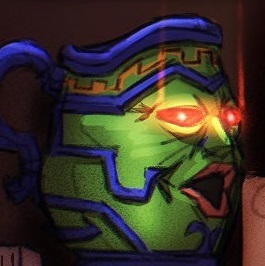Hello comrades, it's time for our first discussion thread for The Will to Change! Please share your thoughts below on the first two sections of the book. There's quite a lot to talk about between hooks' discussion of masculinity discourse within feminist circles, the ways both men and women uphold patriarchy, and the near universal experience of men being forced to suppress their rich emotional worlds from a young age. I'll be posting my thoughts in a little bit after I'm done with work.
If you haven't read the book yet but would like to, its available free on the Internet Archive in text form, as well as an audiobook on Youtube with content warnings at the start of each chapter, courtesy of the Anarchist Audio Library, and as an audiobook on our very own TankieTube! (note: the YT version is missing the Preface but the Tankietube version has it) Let me know if you'd like to be added to the ping list!
Our next discussion will be on Chapters 2 (Understanding Patriarchy) and 3 (Being a Boy), beginning on 12/4.
Thanks to everyone who is or will be participating, I'm really looking forward to hearing everyone's thoughts! ![]()

I have to preface this by saying that, while being generally aware of feminist concepts and terms, I have not really read any explicitly feminist theory. I always got the impression that it was not “for me” as it came from a place so removed from my own lived experience, often with no regard for it or outright contempt and hostility. I could engage with and understand how damaging and oppressive patriarchal structures are to women and queer people but didn’t fully grasp just how much it impacts me as a cishet man. I realize that it’s lazy and incredibly self centered to not engage more deeply on subjects that are not directly relevant to me as a person but can’t deny that I struggle to get deeply invested in theory I don’t find some emotional resonance in. If I only engage with something on a purely intellectual level without being able to apply it to lived experiences and critically examine the way those concepts interact with some baseline that’s more intimately familiar it tends to fall flat.
All of that is to say that I’m coming into this book pretty blind so I’m being totally mind blown by concepts that are likely already well trodden for many here. I have a lot more thoughts I’d like to share but feel I should probably just re read the first two chapters again to fine tune them to the actual text rather than going off on an excited but uninformed tangent